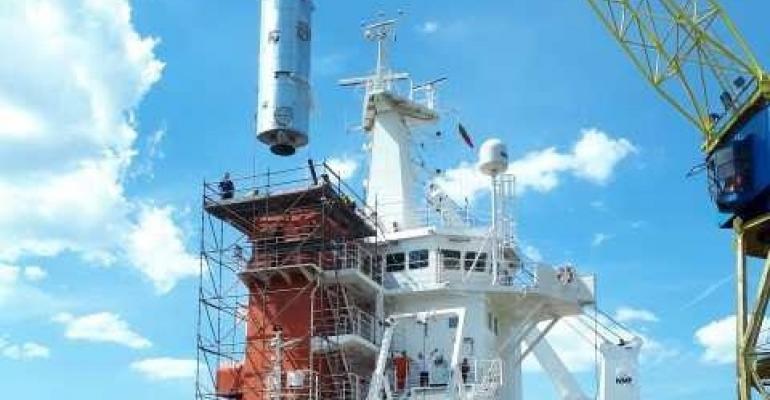With owners opting to fit scrubbers to thousands of vessels to comply with the 2020 0.5% sulphur cap a growing number of countries or ports are looking to restrict or ban the use of open-loop scrubbers that discharge washwater into the sea.
“Some coastal states and ports have implemented local regulations with more stringent requirements that restrict or completely prohibit the discharge of washwater from open loop
Two of the most prominent bans have come from China which has prohibited washwater from scrubbers in port waters of coastal areas ECAs and Bohai Bay waters, and that there will be a ban in the entire coastal ECA in due course, and Singapore, which is introducing a ban from 1 January 2020.
Read more: The significance of Singapore’s open-loop scrubber ban
Other countries or ports with bans or restrictions are India, Abu Dhabi in UAE, Belgium, Germany, Lithuania, Latvia, Dublin in Ireland, Norway, and Hawaii, Connecticut and California in the US.
And there set to be more bans and restrictions to come. “Various other coastal states and ports are discussing enforcing similar bans citing the adverse effects of scrubber washwater on the marine environment. It is therefore likely that the above list of states/ports which currently regulate open loop scrubber discharges in their waters will grow over time,” Gard said.
For owners that have fitted hybrid scrubbers they can switch to closed-loop mode in areas where washwater discharge is banned, otherwise vessels need to switch to burning compliant fuel.
“Any changeover should be carried out well in advance of the vessel entering the areas with prohibition or restrictions in place. This will help in identifying operational issues, if any, after the changeover, and will allow for sufficient time to rectify such before the vessel enters the area,” Gard said.
Copyright © 2024. All rights reserved. Seatrade, a trading name of Informa Markets (UK) Limited. Add Seatrade Maritime News to your Google News feed.


